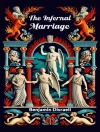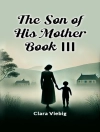In the enchanting narrative of ‘Albion & Marina, ‘ Charlotte Brontë weaves a rich tapestry of imagination deeply entwined with themes of love, identity, and social challenges in early 19th-century England. Utilizing a poignant romantic style characteristic of her work, Brontë critiques prevailing societal norms while exploring the intricate dynamics of human relationships. The story is emblematic of the Gothic and Victorian literary traditions, encapsulating both the suffocating constraints of social class and the yearning for personal freedom, ultimately leading readers through a beautifully complex emotional landscape. Charlotte Brontë, acclaimed for her seminal works such as ‘Jane Eyre, ‘ was influenced by her own life experiences, including the rigid roles assigned to women and the struggles of the working class. Her upbringing in the Yorkshire moors, steeped in both literary exploration and personal hardship, instilled a profound sense of empathy and understanding of the characters she crafted. ‘Albion & Marina’ reflects Brontë’s adeptness at expressing the struggles for autonomy and self-definition, making it a significant addition to her oeuvre. This compelling narrative is highly recommended for readers interested in the intersections of love and societal expectation, as well as those who appreciate masterful character development. ‘Albion & Marina’ stands as a testament to Brontë’s ingenuity, appealing to both her devoted followers and newcomers to her literature.
Про автора
Charlotte Brontë (1816–1855) was a renowned English novelist and poet, prominently recognized for her contributions to English literature in the Victorian era. Born on April 21, 1816, in Thornton, Yorkshire, Charlotte was the third of six children to Patrick Brontë and Maria Branwell Brontë. She initially published her works, including the notable ‘Jane Eyre’ (1847), under the male pseudonym ‘Currer Bell’ to shield herself from nineteenth-century prejudices against female authors. Her novels are celebrated for their originality, emotional force, and keen observation of societal and class nuances. While ‘Jane Eyre’ unfurls the harrowing and resilient journey of its titular character, Charlotte’s other works, such as ‘Shirley’ (1849) and ‘Villette’ (1853), similarly deep-dive into themes of independence, morality, and love, often drawing from her own life experiences. Her prose is marked by a gothic sensibility and psychological depth. ‘Albion & Marina’, while not one of her well-acknowledged works, reflects her literary style of robust character development intertwined with a fervent examination of emotional states and social critique. Charlotte Brontë passed away on March 31, 1855, but left an indelible mark on literature. Her legacy endures in the profound psychological realism and feminist undertones that distinguish her oeuvre.












